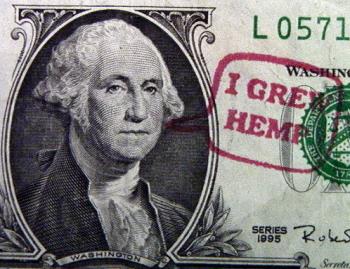why do you need more money???
By samkkaran
@samkkaran (25)
India
December 8, 2006 7:42am CST
All of us over here are doing this mainly for money????But why do you want more money???
6 responses
@samkkaran (25)
• India
8 Dec 06
sacrifices???we cannot sacrifice our happiness to earn money,that was what i was trying to say..
@Marie2473 (8512)
• Sweden
8 Dec 06
I am here for the money, but also because i a,m finding it fun and interesting. i would not spend as much time here otherwise, coz lets face it -you don´t get rich =)
What will i do with the money i earn here - oh I don´t knw. i might buy my bf a nice gift =)
1 person likes this
@Sir_bobby88 (8231)
• Singapore
8 Dec 06
I need More money in order to buy a house for my family yea
@expect007 (360)
• India
8 Dec 06
that is a silly question..........can you say a single reason that you dont want extra money..............man remember one thing the world now we are living is only thinking about how to make money anythingelse come only after this.........
@samkkaran (25)
• India
8 Dec 06
the more you earn the more you spend...lesser is the time spent with family...
1 person likes this
@mrijaz (408)
• India
8 Dec 06
Economics offers various definitions for money, though it is now commonly defined by the functions attached to any good or token that functions in trade as a medium of exchange, store of value, and unit of account. Some authors explicitly require money to be a standard of deferred payment, too [1]. In common usage, money refers more specifically to currency, particularly the many circulating currencies with legal tender status conferred by a national state; deposit accounts denominated in such currencies are also considered part of the money supply, although these characteristics are historically comparatively recent. Other older functions a money may possess are a means of rationing access to scarce resources, and a means of accumulating power of command over others.
The use of money provides an alternative to barter, which is considered in a modern, complex economy to be inefficient because it requires a coincidence of wants between traders, and an agreement that these needs are of equal value, before a transaction can occur. The efficiency gains through the use of money are thought to encourage trade and the division of labour, in turn increasing productivity and wealth.
A number of commodity money systems were amongst the earliest forms of money to emerge. For example
the shekel referred to a specific volume of barley in ancient Babylon
iron sticks were used in Argos, before Pheidon's reforms.
cowries were used as a money in ancient China and throughout the South Pacific.
salt was used as a currency in pre-coinage societies in Europe.
ox-shaped ingots of copper seem to have functioned as a currency in the Bronze Age eastern Mediterranean.
state certified weights of gold and silver have functioned as currency since the reign of Croesus of Lydia, if not before.
rum-currency operated in the early European settlement of Sydney cove in Australia.
Under a commodity money system, the objects used as money have intrinsic value, i.e., they have value beyond their use as money. For example, gold coins retain value because of gold's useful physical properties besides its value due to monetary usage, whereas paper notes are only worth as much as the monetary value assigned to them. Commodity money is usually adopted to simplify transactions in a barter economy, and so it functions first as a medium of exchange[citation needed]. It quickly begins functioning as a store of value[citation needed], since holders of perishable goods can easily convert them into durable money.
Fiat money is a relatively modern invention. A central authority (government) creates a new money object that has negligible inherent value. The widespread acceptance of fiat money is most frequently enhanced by the central authority mandating the money's acceptance under penalty of law and demanding this money in payment of taxes or tribute. At various times in history, government-issued promissory notes have later become fiat currencies (e.g. the US Dollar) and fiat currencies have gone on to become a form of commodity currency (e.g. the Swiss Dinar) [2].
@samkkaran (25)
• India
8 Dec 06
well said man...u seem to have a lot of reasons for coming here i suppose...









